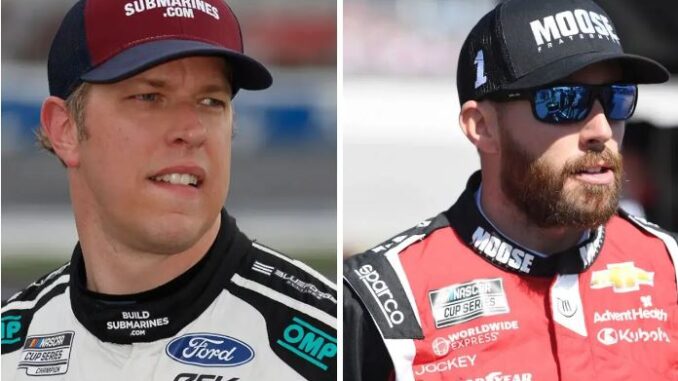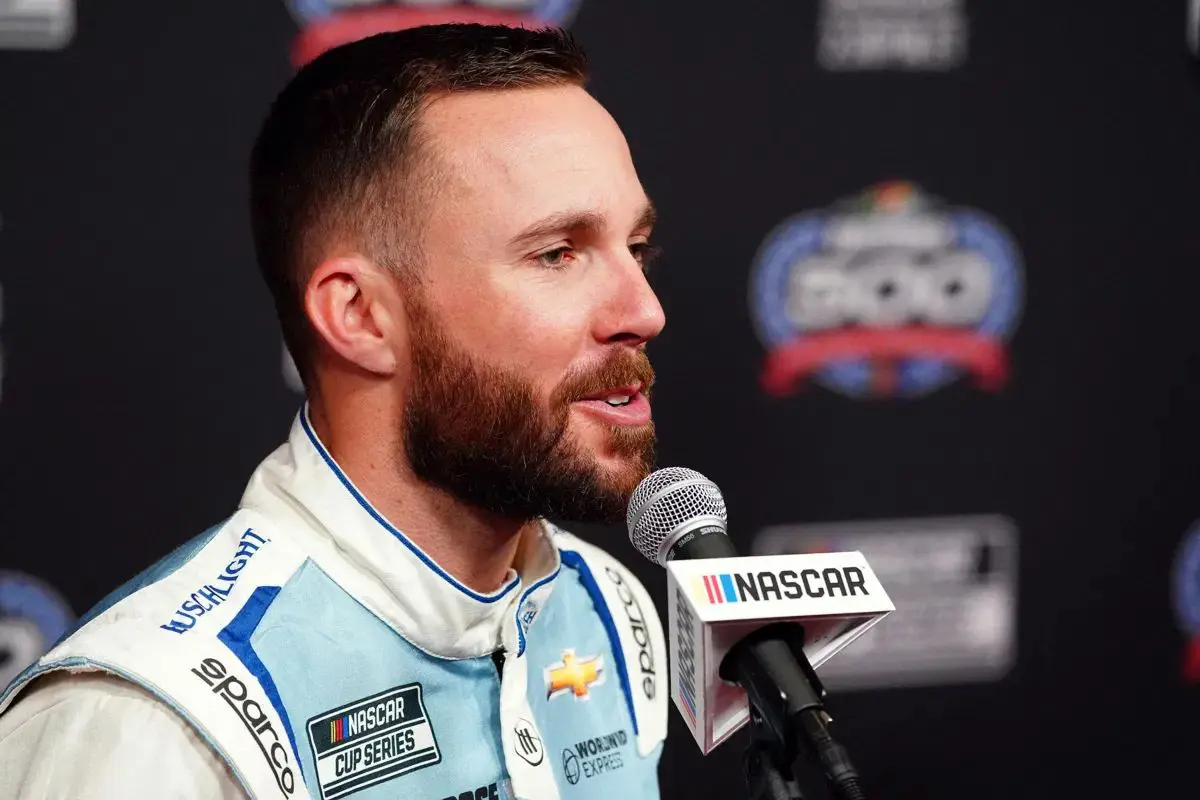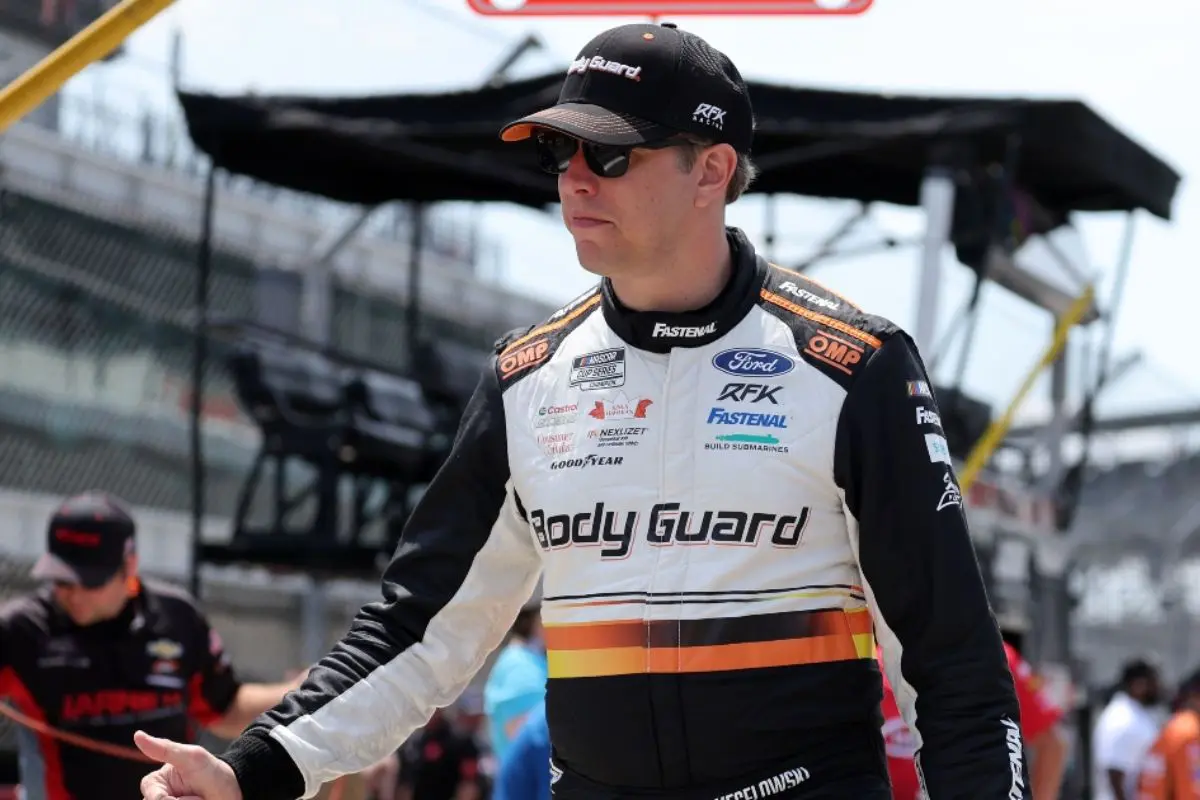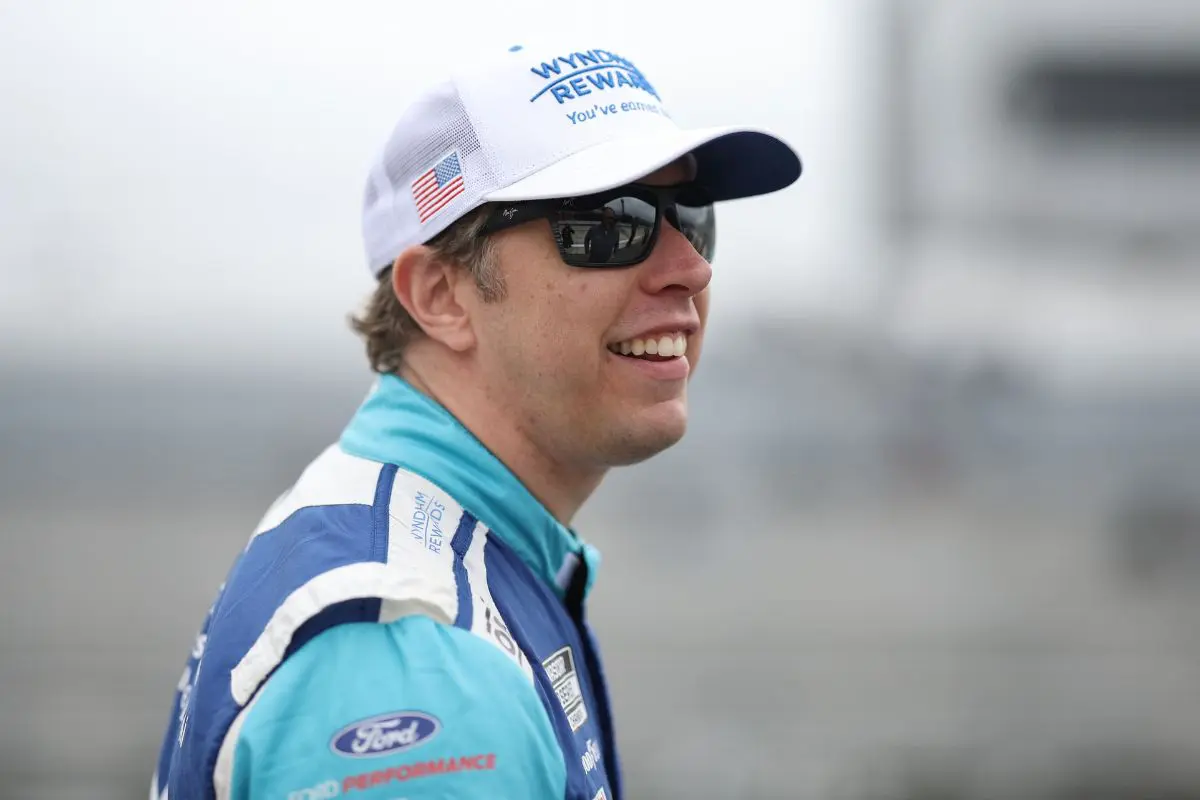
Brad Keselowski challenges Ross Chastain’s legacy. Brad Keselowski’s triumph at Darlington has created a captivating narrative in the NASCAR environment, particularly in light of Ross Chastain’s dashed playoff hopes. This contrast between success and wasted opportunities emphasizes the sport’s unpredictability and raises questions about both drivers’ shifting legacies. As Keselowski thinks on his path and the hardships he has encountered, Chastain’s narrow playoff miss throws a dark shadow on his rising star. What does this indicate for their prospects in a highly competitive field?
Keselowski’s Playoff Success, and Chastain’s Missed Opportunity
In NASCAR, the contrast between Brad Keselowski’s playoff victory and Ross Chastain’s squandered opportunity highlights the unpredictable nature of competitive racing. Keselowski’s route to the 2024 playoffs exemplifies perseverance, as he won his berth with a crucial win at Darlington—his first in three years—following a gruelling 110-race winless streak. This victory demonstrated his ability to perform under pressure and cemented his standing as a viable playoff contender, reviving his career and strengthening his leadership role at RFK Racing.

In contrast, Chastain’s recent performance exemplifies the narrow line between success and disappointment in NASCAR. Chastain entered the Darlington race with a chance to make the playoffs, and while he finished fifth, it was inadequate to overcome the 27-point disadvantage that had harmed his chances. This result is a squandered opportunity for Chastain and calls into doubt his ability to capitalize on important occasions, which is critical in a sport with razor-thin margins.
The similarity between Keselowski’s playoff berth and Chastain’s absence serves as a sobering reminder of NASCAR’s instability. It emphasizes how quickly fortunes can change, forcing drivers and viewers to consider the numerous aspects that determine success on the track.
As the playoff season progresses, the divergent paths of these two drivers will undoubtedly continue to captivate fans and affect discussions about their legacies in the sport.
Keselowski Reflects on His Racing Journey
Brad Keselowski’s comments on his racing adventure highlight the deep influence of family legacy on his professional goals.
Brad’s path seemed preordained as he grew up surrounded by the echoes of his grandfather, John Keselowski, a pioneer. His early commitment to racing, as expressed in a 2011 interview, reflects a mental predisposition influenced by familial influence and personal determination.
He remained determined in his pursuit, claiming, “I wasn’t going to let anything else get in my way.” This resolution, however, was not without hurdles, as navigating the nuances of familial expectations within the race shop taxed his fortitude.
Keselowski’s journey demonstrates how a rich heritage can both motivate and complicate the path to success in a highly competitive environment.

Growing up, Keselowski had numerous challenges.
Growing up in a fast-paced race shop atmosphere presented Keselowski with unique obstacles that affected his early growth and social interactions. Immersed in a world controlled by machinery and competitiveness, he found himself cut off from traditional childhood experiences. Unlike most children, Keselowski spent little time with peers, forcing him to mature faster than his age allowed. This early exposure to adult responsibilities and objectives shaped his social development, prompting him to forego traditional adolescent activities.
His lack of involvement in the usual high school social structure, which included cliques like preppy kids and jocks, allowed him to focus solely on racing. However, this came at a cost: he frequently felt separated from the community that forms formative years. The table below illustrates the contrast between his racing world and traditional childhood experiences.
Through these trials, Keselowski developed a strong sense of self, helping him to traverse maturity with a clear picture of his career goals. This one-of-a-kind upbringing not only shaped his personality, but also provided the framework for his eventual success in NASCAR competition.
Keselowski’s Surprising Revelation About Watermelons

Keselowski’s surprise aversion to watermelon suggests a deeper psychological link to childhood experiences, which frequently affect our likes and aversions. His candid statement, “I don’t eat watermelon,” is more than just an amusing anecdote; it recalls a formative occurrence from his upbringing. As he explained, a bout of illness tied to watermelon intake left an everlasting impression on his psyche.
This phenomena, in which a single negative experience can cause long-term aversion, exemplifies the complex interplay of memory and taste. Keselowski expressed a powerful sentiment: “You can’t touch it.” It’s as if you have a mental propensity. This phrase underlines how our formative experiences might develop mental boundaries that shape adult behaviour.
The psychological ramifications of such an event can be severe, sometimes driving people to avoid meals or activities that bring up painful memories. Watermelon has become a symbol of Keselowski’s battle, signifying not only a food preference but also a psychological threshold that he refuses to overcome.
Surprisingly, his allergy does not extend to his children, who enjoy the fruit without hesitation. His willingness to serve them watermelon reflects a subtle awareness of his own limits, along with a desire to instill delight in his children.
This duality demonstrates the intricacies of parental roles, since personal experiences can alter the setting in which children explore their preferences. Keselowski’s confession serves as a reminder of how early events can persist and influence our decisions and behaviours well into adulthood.
Keselowski’s Joy at Having a Son
Amidst the frenzy of motorsports stardom, the birth of a boy has provided the Keselowski family with a renewed sense of joy and perspective. Brad Keselowski, an accomplished driver with a rich NASCAR Cup Series legacy, expresses heartfelt appreciation for the birth of his son Maize. This milestone not only enriches the family dynamic, but it also opens the door to the possibility of carrying on a legacy that has defined their genealogy in motorsport.
Keselowski, who has previously welcomed two daughters, finds the addition of a son energizing. He notices a noticeable shift in family interactions—his daughters, who are usually competitive with one another, now have a different dynamic with Maize, whom they view as a comrade rather than a rival. This progression creates a pleasant environment, allowing Keselowski to enjoy the uniqueness that Maize brings to their lives.
Maize, only nine months old, has already captured his father’s admiration. Keselowski appreciates his son’s calm personality, emphasizing the blessing of having a child who is not fussy. This simplicity contrasts sharply with the intricacies that are frequently seen in the racing scene.
As the Keselowski family considers the future, the issue of whether Maize will pursue motorsports remains unanswered. Regardless of his path, Keselowski’s life is enriched by the joy of fatherhood, which serves as a stabilizing influence amid the excitement of the racetrack. Maize’s arrival has, indeed, marked the beginning of a new chapter, one full of promise and deep joy.
News in Brief: Brad Keselowski challenges Ross Chastain’s legacy.
Brad Keselowski’s triumph at Darlington is a testament to his continuing skill and resilience, as well as a turning point in the competitive storyline surrounding Ross Chastain. The divergent journeys of these two drivers demonstrate the volatility that exists in NASCAR, where successes can reshape legacies and squandered opportunities may linger ominously. Finally, this dynamic emphasizes the sport’s never-ending pursuit of excellence, with each race holding the potential for far-reaching consequences.
Leave a Reply